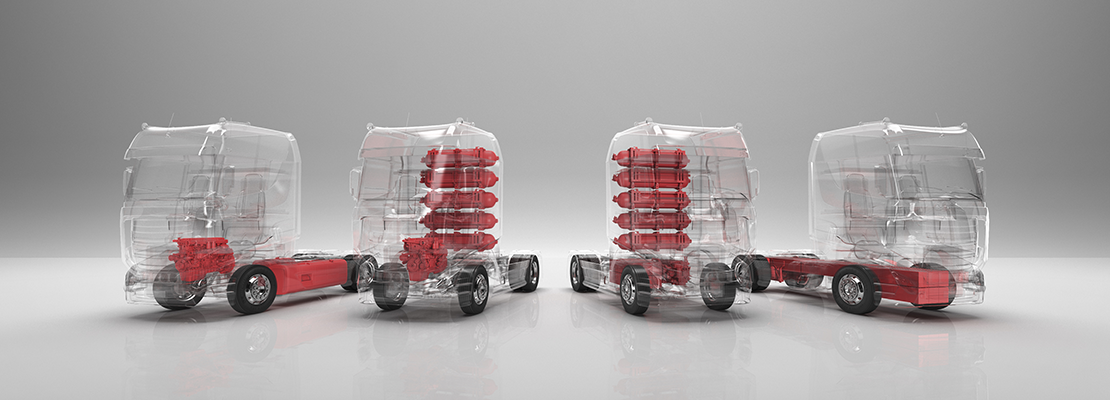HYDROGEN POWERED FUTURE
Increasingly stringent CO2 regulations demand a change in approach of powertrain concepts in the mobility sector. Globally, CO2 regulations aim at significantly reducing greenhouse gas levels. For example, in Europe, CO2 emissions in the transport sector must be reduced by 15 percent by 2025; and by 30 percent until 2030 compared to the 2019. The long-term focus is developing completely CO2-neutral powertrains.
A major factor in defossilizing the environment is the use of hydrogen as a zero CO2, renewable energy source. Hydrogen can be transported over long distances and used to store large amounts of energy. The use of hydrogen also has the potential to reduce or eliminate carbon emissions in segments of the mobility sector where electrification using heavy batteries is inefficient (e.g. in certain application of commercial vehicles, buses, large passenger cars, and even trains and ships). ). In addition, hydrogen’s fast startup and refueling capabilities offer significant potential for sustainable propulsion.
At FEV, the use of hydrogen is being approached from different perspectives, a selection of which will be presented in detail during the newest series of FEV online seminars on a “Hydrogen Powered Future.” In addition to discussing hydrogen as a fuel source, we’ll examine the use of hydrogen in ICE and fuel cell powertrains.
Targeted to industry experts, this hydrogen-focused online seminar series will introduce and highlight advantages and challenges of specific applications of hydrogen to enhance our audience’s decision making process. We invite you to join us as we highlight FEV’s global expertise and capabilities in the ever-evolving journey to zero CO2 mobility at the FEV Online Seminar Series, “The Hydrogen Powered Future.” Learn about FEV’s global expertise and capabilities in this new and dynamic field leading to CO2-free mobility by registering for free.
Related:
Future Truck Series
 The Heavy-Duty truck industry has started to find the optimum powertrain. 2020’s FEV series of five online seminars provides valuable insights into the future of on-road commercial vehicle powertrains and their significant role towards affordable and sustainable CO2 reduction.
The Heavy-Duty truck industry has started to find the optimum powertrain. 2020’s FEV series of five online seminars provides valuable insights into the future of on-road commercial vehicle powertrains and their significant role towards affordable and sustainable CO2 reduction.
Take a look at the slides and recordings of the event: Future Truck Series



